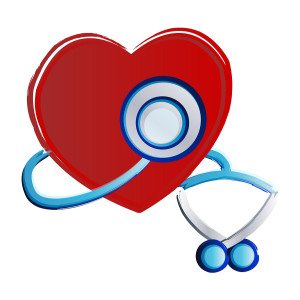Senior Care Tips for Seniors with Congestive Heart Failure
Senior Care in Reston VA
If one of your aging parents has recently been diagnosed with congestive heart failure, you might be feeling worried about what this means for them and for the future of their health and  wellbeing. After all, “heart failure” can sound truly daunting and frightening when it applies to your loved one. Understanding this condition and what you can do to take care of your senior as he goes through his journey with CHF is an important part of making sure that he can maintain his health and live the highest quality of life possible throughout his aging years.
wellbeing. After all, “heart failure” can sound truly daunting and frightening when it applies to your loved one. Understanding this condition and what you can do to take care of your senior as he goes through his journey with CHF is an important part of making sure that he can maintain his health and live the highest quality of life possible throughout his aging years.
The first thing to know about congestive heart failure, sometimes simply referred to as “heart failure,” is that this is not the heart just suddenly stopping or a condition that will cause his heart to just suddenly stop. Instead, the “failure” aspect refers to a heart that has become weakened or stiff and can no longer pump blood efficiently throughout the body. A wide variety of conditions can lead to the development of CHF, such as obesity, coronary artery disease, diabetes, and hypertension, which means that paying close attention to your parents’ health and doing what you can to control these issues is a vital step in helping to prevent and manage CHF. There are also lifestyle and care changes that you can make to help keep your parent as healthy as possible even as he deals with CHF in his care journey.
Use these tips, and share them with your parents’ senior health care services provider, to care for your senior with congestive heart failure:
• Monitor salt intake. This seems like one of the simplest lifestyle changes that you can make to help control CHF, but it can prove to be one of the most difficult, especially if your senior tends to eat a lot of processed, packaged, or convenience foods. Make sure that you know the amount of sodium your parent’s doctor recommends for him to consume daily and educate yourself and your senior on how to properly read nutrition labels so you can make adjustments to his daily diet in order to control this amount.
• Lose weight. If your senior has a few extra pounds on him, it is important to help him shed them in order to reduce the strain on his heart. Even just a small amount of weight loss can represent a tremendous improvement in the effectiveness of the heart muscle. Talk to his doctor about the type of exercises that are appropriate for his needs so that you get him active safely.
• Monitor his weight. Even if is already at an ideal weight, it is important that you maintain a regular weight monitoring schedule. Sudden weight gain can be an indication that your loved one is retaining fluids, which could mean that his heart is becoming weaker and not operating as effectively. Recognizing this promptly is the best means of making sure that you can get in touch with his doctor to make possible adjustments to his treatment plan.
If you or an aging loved one are considering senior care services in Reston, VA, call the caring staff at Medical Professionals On Call today. 703-273-8818
http://www.mayoclinic.org/diseases-conditions/heart-failure/basics/definition/con-20029801
- Do Your Parents Face More Challenges When They Live in a Rural Community? - November 6, 2019
- Ways to Ease Arthritis Symptoms in the Elderly - October 24, 2019
- Tips for a Better Life with Fibromyalgia - October 9, 2019
